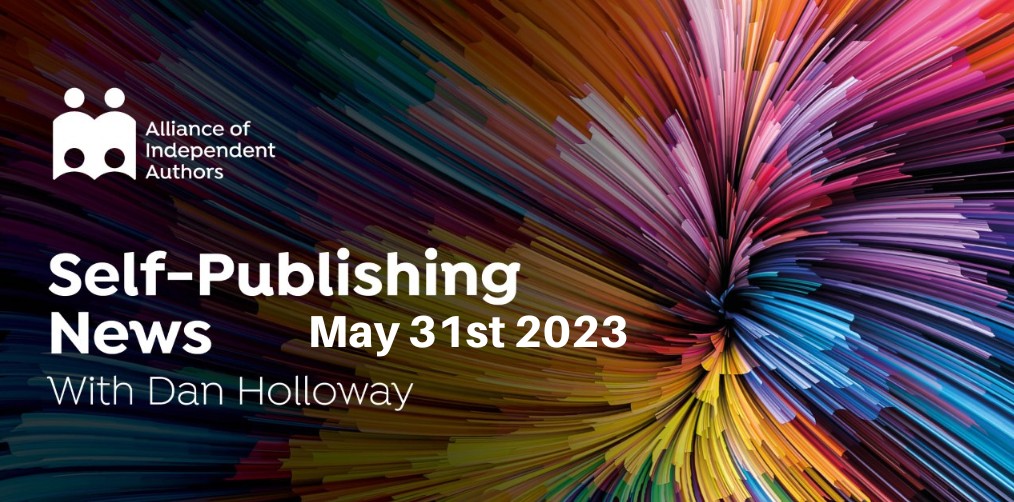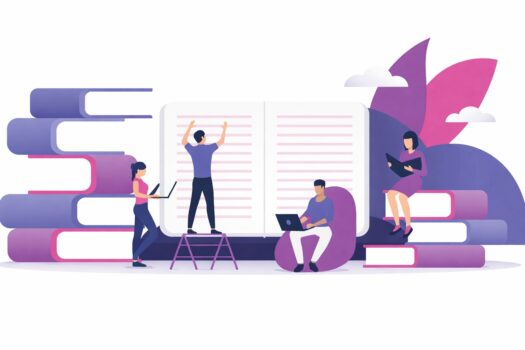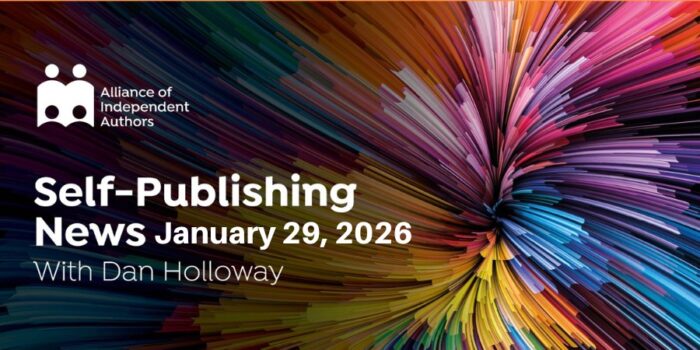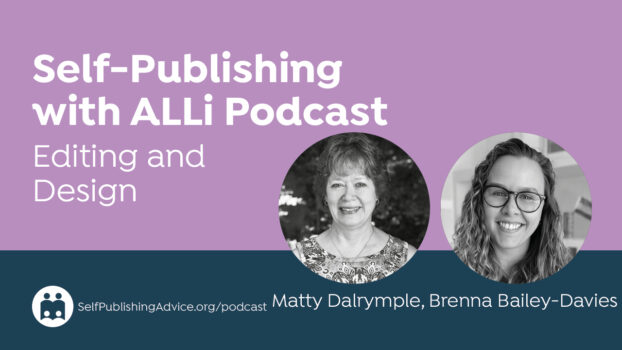In this week's Self-Publishing News Special, ALLi News Editor Dan Holloway takes a look at the new EPUB standard and increasing tensions between legislators and libraries in the US.

ALLi's News Editor Dan Holloway
Do tune in and listen to the latest Self-publishing News podcast, just out. Howard and I have been talking about the German study of young people's reading habits. We had a particularly interesting time thinking about what the increasing clamp down on TikTok in the US meant for social media's reading culture and fiction-centred aesthetic groups (of special note because of the platform's prevalence in driving reading in Germany).
W3C's New EPUB Standard has Accessibility Baked in
Most of you will recognise EPUB as a digital document format. Many of you, including those who have been reading this column for some time, will know that EPUB is the standard ebook format overseen by W3C, the organization that ensures the connected digital world keeps working. The heart of W3C’s work is making sure the online world works for as many people as possible. A key part of that is interoperability. That is, providing digital tools that work anywhere. EPUB is one such tool. You can read an EPUB file from pretty much any web browser. And it’s not a proprietary format. So anyone who writes a book and wants others to be able to read it, whatever tech they have access to, can publish it in EPUB format.
W3C has just launched the new EPUB standard, 3.3. And for the first time accessibility is fully baked in. Not just in terms of interoperability, but in terms of making the files themselves accessible for all readers. To this end, W3C has produced the document EPUB Accessibility version 1.1. This document has two areas of focus. First is what it calls “discoverability of the accessible qualities of EPUB publications” and second “evaluation and certification of accessible EPUB publications.” The intention is simple. Make it easy for readers, however they read, to find out if a file will work for them. This can save huge amounts of time and effort trying to get to grips with something that ultimately won’t work. As an accessibility campaigner, and someone who has worked on several projects to put transparency first, recognising the importance for those with accessibility needs of knowing what you’re dealing with before you start, this is a very welcome step.
“This is a great thing to hear and means that authors, simply by releasing their books as EPUBs, can know that they are making their work more accessible and less frustrating to readers, an important part of being an ethical author.” Melissa Addey, ALLi's Campaigns Manager
The Obscenity and Censorship Debate Hots up with new PEN Report and Publishing Lawsuit in Arkansas
Many of you reading this column will quite possibly have felt that I have been leaving out one of the most important literary news items of the moment. This week I want to plug that gap. And I will do so with two stories. They centre, as the title suggests, on the increasing tensions in the US over alleged censorship of schools and libraries by state legislatures. One of the reasons I hesitate to cover these issues is that I lack the depth of knowledge around the US legal system that I have when it comes, say, to European tax law. I hope my factual understanding is up to scratch here.
First is the news that a coalition of literary groups has joined forces to mount a legal campaign in Arkansas. The lawsuit seeks to challenge a law due to come into force on August 1. That law would remove librarians’ protection from criminal liability for making “obscene” titles available to minors. I may not be an expert in US law, but I do know from history in the UK that obscenity laws can end up creating what I believe is technically called a “hot mess.” Nowhere is this clearer than the fact that our country’s brush with obscenity coined the phrase “I know it when I see it.”
Second is news from American PEN’s May report. PEN is an international organization that advocates for literary freedom across the world. It monitors the imprisonment, persecution, and censorship of writers and writing. And its American chapter is increasingly worried by the legislative moves in the US. The May report focuses on what it calls educational gag orders. These are primarily initiatives that seek to prevent DEI (diversity, equality and inclusion) initiatives in schools and colleges. They claim to protect freedom of speech and parental freedom. American PEN argues that legislative moves (it reports 26 instances of legislation in 17 states) can provide cover for political censorship agendas. I recommend reading Publishing Perspectives’ detailed analysis.
Indie Unconference in Italy
Unconferences are a fascinating way of holding events. They upturn the traditional conference model by placing the emphasis on participants, not speakers. The aim is to share ideas and best practice from the grass roots. An indie Unconference will take place from June 14-17. It will happen in Italy's Matera, because if you are going to share ideas it helps to do so in stunning surroundings. With sponsors including Draft2Digital, Vellum, Plottr, Smashwords, The Book Whisperer, and Reedsy it should be a great event for indie authors. You can find out more and book here.
Our new Ambassador for Italy, long-term ALLi member Elizabeth Jennings, will be sending us an ‘out and about' very soon, covering this event, which she organises.
NFTs are in the news again
They probably never went away, but NFTs are back in the news this week. A nostalgic return to the hype of yesteryear provides a welcome break from AI this and AI that. I run this story not just because I pine for the innocent days of the blockchain. It's also because the story centres on Korean companies Kakao and Naver. Both of these companies are massive players in the immensely popular Webtoon market. Webtoons are digital comics that are smartphone-native (so they tend to feature scrolling single panels). They are very popular with readers, but their platforms are also home to many thousands of self-published writers. Naver also, of course, owns Wattpad.
Both Naver and Kakao are now investors in Goodgang Labs, which Techcrunch describes as an “NFT avatar enabler.” What that means is that they take the NFT you've paid for, and make it talk realistically on suitable platforms. The article explains what's novel about the technology in terms of saving bandwidth. But what's really interesting, as it points out, is the popularity among young users. And just as we have seen with Spotify, as these giant platforms invest in different companies with different specialisms, you can see the dots join. How long before people have their enabled avatars read books to them?
W3C's new EPUB standard makes it easier for readers to know which ebooks are accessible to them, and other top #selfpub news stories for #indieauthors, in one quick read, by #ALLi News Editor Dan Holloway @agnieszkasshoes… Share on X




I have learned many interesting things through your posts. FGO offers the best selection of free games available online and the best uninterrupted gaming experience.